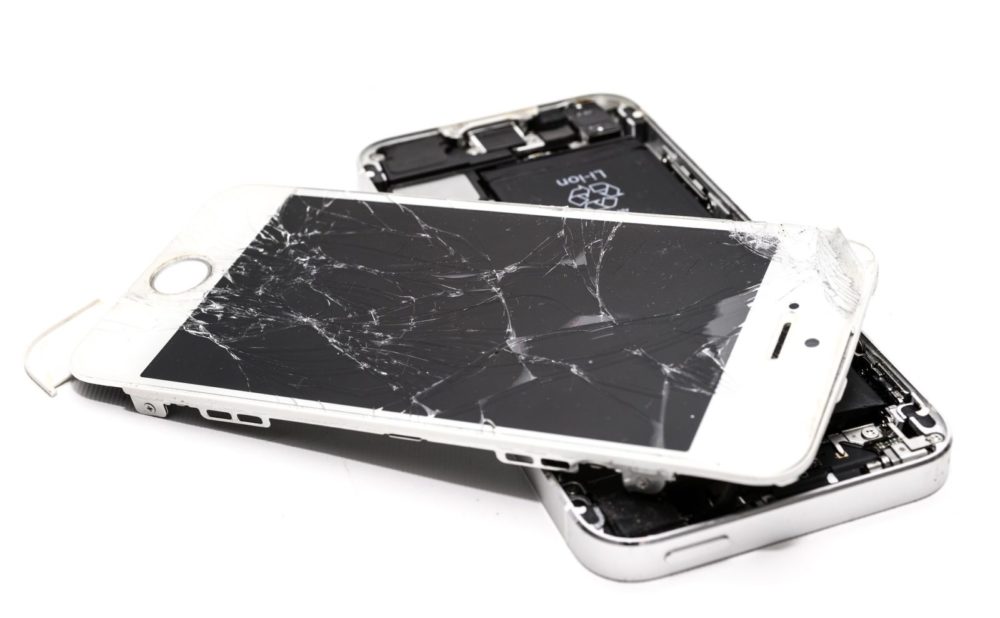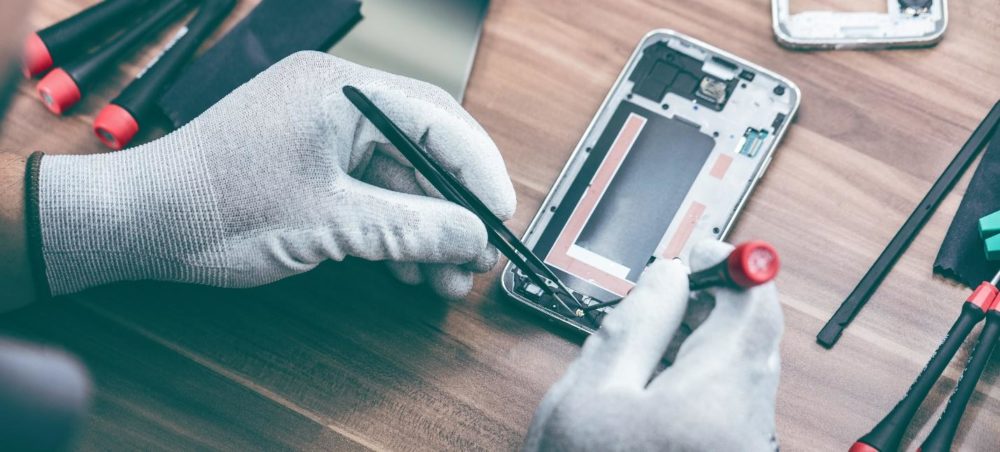If you ever started losing power in your smartphone and fumed that it was only a few years old, you were probably even angrier when you learned the device couldn’t be repaired.
There are two reasons for that. One, the majority of cell phone manufacturers don’t want customers to repair their cells and keep them for a longer period of time but instead upgrade to the newest version. That’s when you may have learned in frustration that the battery in your cell can’t be removed – or replaced since they’re virtually glued into the device.
The cell manufacturers also employ lobbyists who work against Right to Repair Electronics legislation, which aims to help consumers do what they can’t do now: which is repair their aging electronics.
So it was noteworthy when Motorola just announced it was going to make it as easy as possible for their customers to repair their phones.
The company said it would sell replacement parts for all of its recent phones in a partnership with iFixit to sell repair kits for phones like the Moto X and Droid Turbo 2. Those kits are expected to come with tools, Motorola-branded replacement parts, and instructions on how to fix the device.
Will more electronics manufacturers follow Motorola’s example and embrace rather than fight independent repairs? Time will tell.
But it’s also worth noting that this issue is important because it’s about more than just a lifeless device. This is also about the ongoing problem of e-waste, and how it poses serious risks to our environment.
What is the Right to Repair Movement?
The concept of Right to Repair laws started as a way to help consumers keep their electronics longer.
As devices have become smaller and new technologies get more sophisticated, that’s led to a shortened lifespan – with consumers needing to get their devices replaced with newer, and costlier, versions of what they already have. Right to Repair Electronics hoped to change that.
The concept quickly caught on. Industry groups, like the Institute of Scrap Recycling Industries, came out in support of Right to Repair, citing the environmental and economic benefit of doing so.
Right to Repair bills mandate that electronics manufacturer provide spare parts and repair manuals for aging electronics. Advocates say this is going to help cut down on the growing e-waste problem.
E-waste refers to used electronics that people no longer want, and far too often simply throw out with household trash. And the problem is that every year the amount of e-waste being pitched skyrockets across the globe.
In 2017, the world generated 44.7 million metric tons of e-waste. The United Nations, which has been sounding the alarm about this problem, has warned that the number will exceed 50 million by the end of this year.
The environmental advocacy group Greenpeace has categorized electronics manufacturers as being the biggest producers of e-waste since those companies get poor grades when it comes to allowing their devices to be easily repaired, or by promoting recyclability.
Massachusetts became the first state to pass a Right to Repair bill in 2014. Now 19 states are pushing Right to Repair bills to help consumers by allowing repair shops that fix internal issues on cell phones, laptops, and other electronics in order for consumers to get access to parts needed to fix them.
Now, most large companies like Apple and Samsung don’t sell parts to consumers directly or to repair shops not authorized by them.
And at a time when it’s been estimated that up to 350,000 cell phones are thrown away each day in the U.S. alone, Right to Repair Electronics is seen as both a consumer-oriented effort and an environmental one to help keep electronics out of landfills.
Why Is This Right to Repair Electronics Movement Linked to the Environment?
Right to Repair, in fact, helps broaden the debate about how best to deal with e-waste – and to keep it out of landfills.
Used electronics might seem harmless enough, but they contain toxic chemicals like mercury and lead which can seep into the soil and water near landfills and pose serious pollution and contamination risks.
The more e-waste that ends up in our landfills, the more serious the contamination problem becomes.
Recycling and Great Lakes Electronics
The strongest solution for the rising amount of e-waste has been recycling. Professional firms like Great Lakes Electronics Corporation can successfully recycle used devices, removing the parts that still have value, and then selling them to manufacturers to make new products. Great Lakes Electronics Corporation has years of experience performing environmentally friendly recycling of electronic products.
And since many of the lobbyists working against Right to Repair cite security concerns (that taking a computer to a repair shop runs the risk of technicians stealing your personal data or placing malware on your laptop), it’s noteworthy that Great Lakes Electronics Corporation is also a security specialist with the ability to ensure that all personal information stored on those devices and hard drives gets eliminated, which prevents identity theft.
Throwing those devices away does not prevent the potential of identity theft.
Recycling keeps the landfills cleaner and helps hold down the cost of making new products by using recycled materials.
Where Does the Movement Stand Today?

While some electronics simply malfunction, far too often the newest ones are designed so the owner can’t remove the battery. They’re even created to stop working over a certain period – forcing the owner to have only the option of replacing it, not repairing it.
Electronics manufacturers would prefer to sell you their latest models rather than repair your old electronics, so they work to make fixing their products too expensive or too impractical.
It’s become a global problem and led to more and more people throwing out their used electronics. Tossing things out instead of fixing them has far-reaching consequences—for consumers, for the economy, and for the environment. That’s why there’s a big push for Right to Repair laws in several states.
Still, the movement got some good news in October when the Librarian of Congress and the U.S. Copyright Office granted American consumers and gadget repair shops greater freedom to fix smartphones and other electronics. It was considered a major victory for the Right to Repair movement.
The Librarian of Congress carved out exemptions to the Digital Millennium Copyright Act of 1998, which made it illegal to circumvent measures aimed at preventing the piracy of copyrighted books, movies, video games and computer software. It banned people from getting around digital “locks” on devices designed to prevent the theft of intellectual property.
Essentially, it kept consumers from “compromising” their electronics so the security of a device’s operating system was left intact.
Consumer advocates complained this prohibition prevented consumers from being able to fix their broken devices at the risk of violating copyright laws. The new exemption, which went into effect Oct. 28, establishes that consumers have a legal Right to Repair something they own. Customers can now unlock their smartphones, and repair shops can fix smartphones on an owner’s behalf.
Prior to this decision, consumers technically were breaking the law in some instances if they tried to fix a device they owned. The same was true if they took it to an independent repair shop.
This is a step forward in taking on the challenge of unrepairable electronics, which contributes to tremendous amounts of e-waste.
Conclusion
The Right to Repair movement may turn out to be a major factor in reducing the amount of e-waste we’re struggling with globally. And that’s because we know recycling remains the most effective way to keep e-waste from damaging our environment and our health.
And what’s important is that everyone recycles their used electronics. We all have the power to contribute to this environmentally conscious campaign by doing so.
Great Lakes Electronics Corporation has a great reputation for being trusted experts in the recycling and management of waste electronics and other metals. The unwanted equipment brought to Great Lakes Electronics Corporation is recycled in a responsible, environmentally conscious way, by this family-owned and operated business that prides itself as being environmental stewards.
Great Lakes Electronics Corporation serves customers both large and small, from private customers to large corporations. Contact them today at 888-392-7831 to request a quote.

